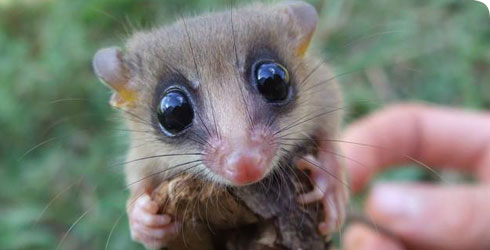Cryptonanus chacoensis
Cryptonanus chacoensis is the smallest of the Paraguayan mouse opossums (Smith, 2009). It is apparently very adaptable and occurs in a variety of open habitats.
There is some confusion in the scientific literature between this species and Gracilinanus agilis, which makes it difficult to assess population trends in Paraguay, but it does seem to be under less threat than most other Didelphids.
The species is one of the more commonly captured small marsupials in Paraguay and may even be benefiting from deforestation of the Atlantic Forest and consequently, expanding its range (Smith, 2009).
The generic name Cryptonanus is taken from the Greek meaning 'hidden dwarf', referring to the fact that this cryptic genus remained overlooked for so long (Smith, 2009).
Species detail
-

Taxonomy
Cryptonanus chacoensis is a marsupial, but lacks a pouch. Discover which other distinguishing features have helped scientists correctly classify this species.
-

Distribution
Cryptonanus chacoensis is found in Paraguay, Bolivia, Brazil and northern Argentina where it nests in vegetation on the banks of rivers and streams.
-

Behaviour and reproduction
Cryptonanus chacoensis seems well adapted for climbing, but all the specimens collected in Paraguay have been found on the ground. Read more about this and the difficulties we have in learning about its reproductive behaviour.
-

Conservation
This marsupial species seems able to adapt to habitat changes caused by human activities, and is not thought to be threatened.
-

References
Get reference material for Cryptonanus chacoensis.
Images
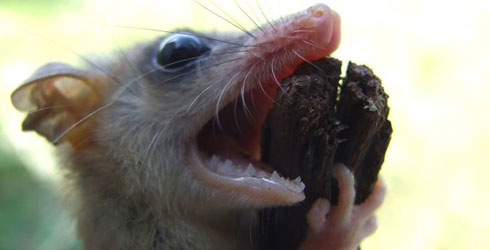
Chaco mouse opossum dentition.
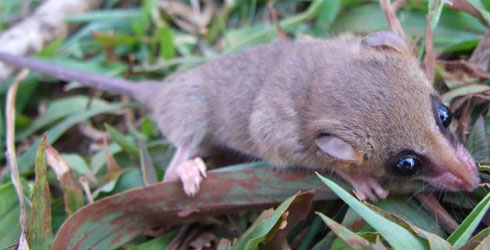
Chaco mouse opossum dorsal view.
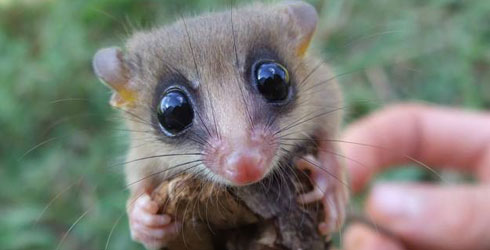
Chaco mouse opossum frontal.
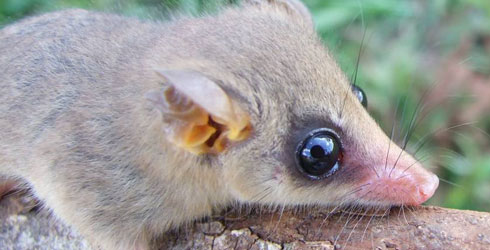
Chaco mouse opossum head detail.
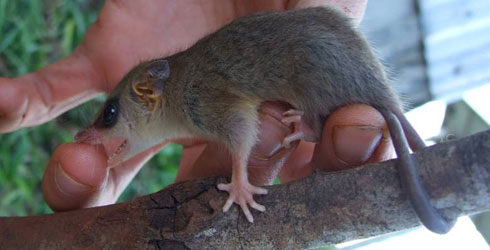
Adult chaco mouse opossum.
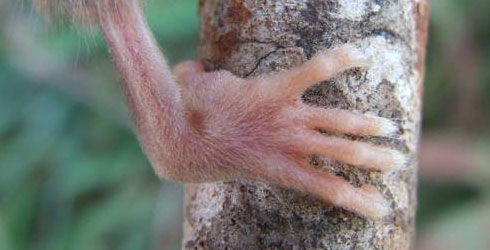
Chaco mouse opossum hind foot.
About the author
A word from the author
"Much still remains to be learned about the taxonomy, distribution, and natural history of this seemingly quite successful species."
Toolbox
Glossary
Bromeliads
A family of plants that includes the pineapple.
Riparian
The interface between land and a river or stream.
Didelphidae
A family of mammals that comprises the opossums.
